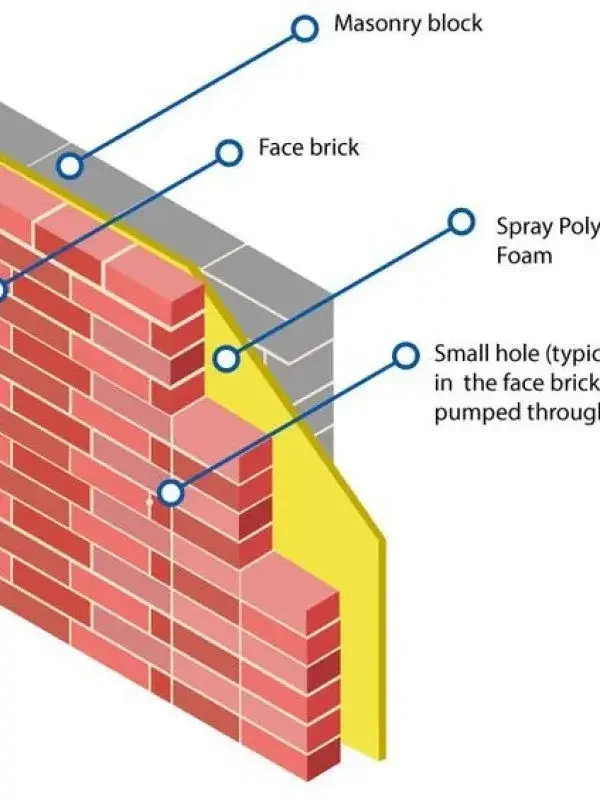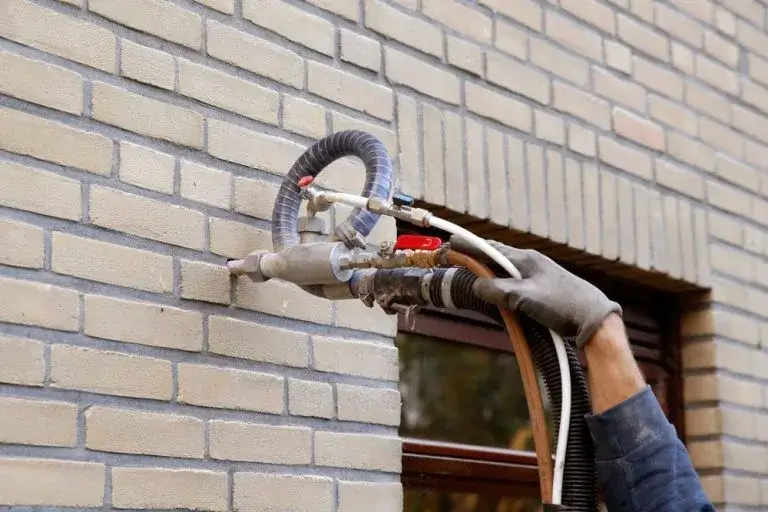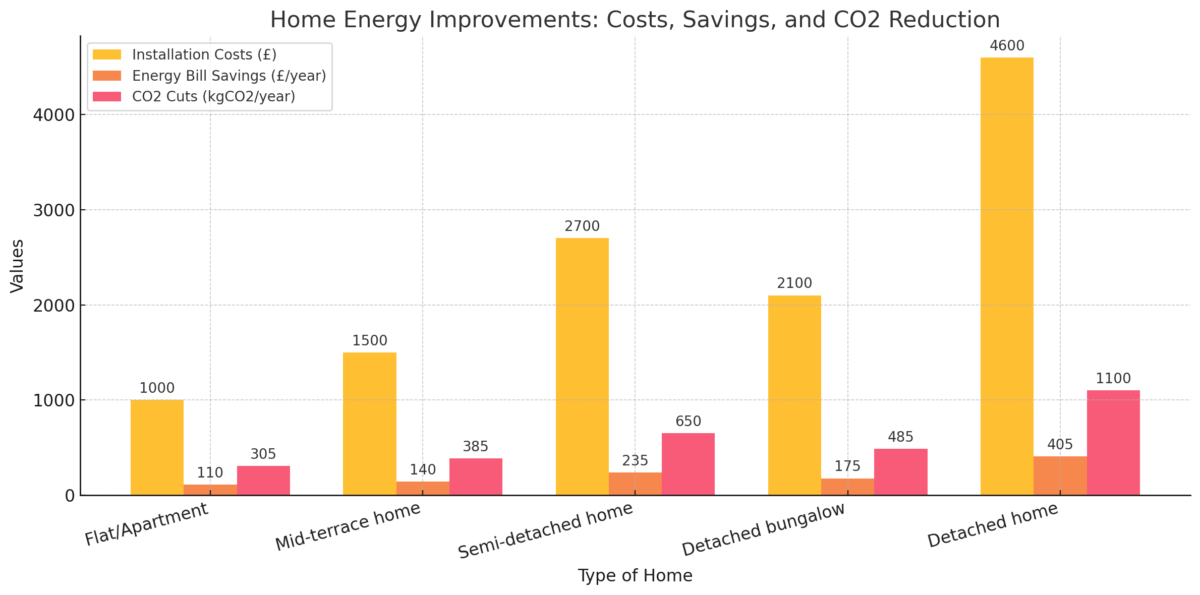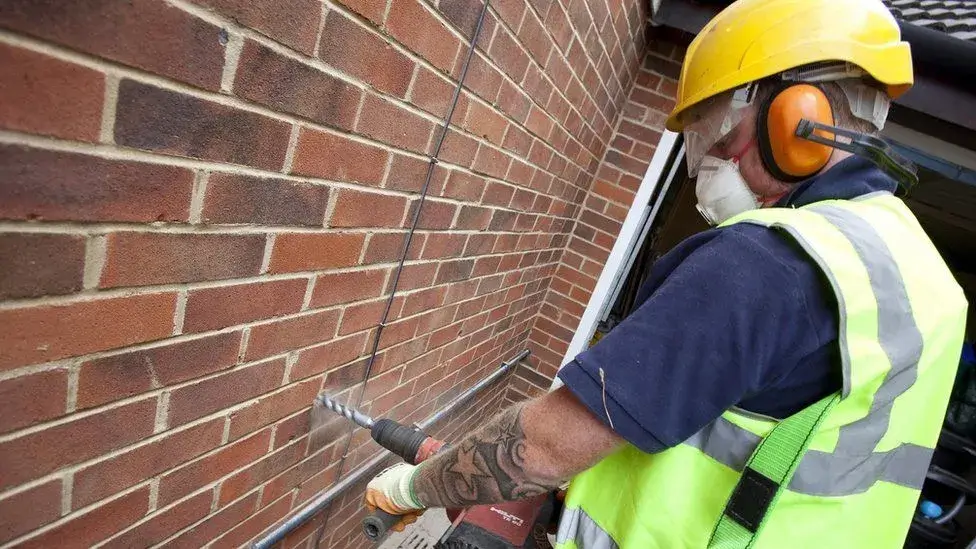Discover how you can reduce your energy bills and stay warm with free cavity wall insulation under UK government-funded schemes. Check your eligibility today and enjoy professional installation at no cost. Don’t miss this opportunity to make your home energy-efficient and eco-friendly!

Applying for a free cavity wall insulation grant is a simple, step-by-step process. Here’s how we make it easy for you to enhance your home’s energy efficiency under the government’s ECO4 and Great British Insulation Scheme
Start by using our online grant checker to see if you qualify for a wall cavity insulation grant. Simply fill in a quick form with your property details and information about your eligibility.
Once you’ve applied, one of our experienced advisors will call you within a time slot that works for you. During this consultation, we’ll explain the available energy efficiency measures and discuss whether you meet the criteria for free cavity wall insulation.
Our team will review your application to confirm if you’re eligible for a government-funded cavity wall insulation grant. If you don’t meet the criteria, we’ll guide you on alternative options to access support.
If you’re renting your home, we’ll assist in getting your landlord’s permission. We’ll also discuss any necessary contributions from the landlord as part of the process.
if you’re eligible, we’ll arrange a visit from our professional assessors. During the survey, we’ll determine if your property is suitable for cavity wall insulation and identify the best energy efficiency measures for your home.
Once the survey is complete, we’ll book your installation at a time that’s convenient for you. Our professional installers will carry out the work, ensuring your insulation meets all government standards.


Cavity wall insulation is one of the most effective ways to improve your home’s energy efficiency, reduce heating costs, and lower your carbon footprint. By filling the gaps between your property’s walls, this insulation helps retain warmth during the colder months and keeps your home cool in summer, providing a comfortable living environment all year round. It can cut energy bills by up to 35%, significantly reducing household expenses. Additionally government grants for cavity wall insulation, many homeowners may qualify for free or heavily subsidised installation, making it an affordable solution for long-term energy savings.
Delaying wall cavity insulation could lead to higher energy bills and potential property damage caused by heat loss. Moreover, the cavity wall insulation cost is fully covered under free cavity wall insulation government scheme if you qualify, making it an excellent opportunity to enhance your home’s comfort without financial stress.
Fully Government-Funded
With grants for cavity wall insulation, you can enjoy professional installation at zero cost to you. Take advantage of this hassle-free solution today.
Quick and Easy Installation
Our experienced installers ensure the process is seamless and efficient, with most installations completed in just a few hours, depending on your property size.
Save on Heating Costs
Insulating your cavity walls can reduce heat loss and save up to a third on your energy bills each year. Start cutting costs while keeping your home warmer.
25-Year Guarantee
Enjoy peace of mind with our Qualitymark-accredited service. Your cavity wall insulation comes with a 25-year insurance-backed guarantee (IBG), ensuring long-term reliability.
Warmer, More Comfortable Home
Prevent heat loss and improve your home’s comfort all year round. Free cavity wall insulation helps retain warmth, keeping your living spaces cozy and energy-efficient.
Boost Property Value
Upgrading your home with free wall cavity insulation can not only lower energy bills but also increase your property’s value, making it a smart investment for the future.
Households with a total annual income of £31,000 or less are eligible for free cavity wall insulation. If your income is above this threshold, you may still qualify if you receive certain benefits or live in an energy-inefficient home.
Your home must meet certain property-related conditions to qualify:
You may also be eligible if you or someone in your household receives any of the following means-tested benefits:
If you receive Child Benefit, the eligibility depends on your household income and the number of children in your care.
Even if you don’t meet the income or benefit criteria, you may still qualify if you are referred by your local authority or Citizens Advice as a vulnerable household. This often includes individuals who are elderly, have disabilities, or suffer from health conditions worsened by cold living environments.
If you’re considering whether cavity wall insulation is free for over 60s, the answer is yes, depending on your circumstances. Grants for cavity wall insulation are designed to assist those most in need, including pensioners and low-income households.

We Operate Nationwide

* The data shown above is based on April 2024 estimates from Energy Saving Trust UK.









Useful Links